
Wong is the executive director of IOI Corp Bhd’s Yayasan Tan Sri Lee Shin Cheng (Photo: Suhaimi Yusuf/The Edge)
It is a sunny Monday morning and the early crowd is trickling into IOI City Mall in Putrajaya.
On the third basement level in the western wing of the expansive shopping centre, a charming little thrift store takes residence along a wide walkway, visible to passers-by who often cannot resist dropping in for a quick hunt for affordable buys.
This is Bargain Basement, the social enterprise brainchild of Datin Joanne Wong, who is the executive director of IOI Corp Bhd’s Yayasan Tan Sri Lee Shin Cheng (YTSLSC).
Looking immaculate and smiling broadly, she engages in an outlet tour to acquaint her guest with its offerings and cause.
Items at the flagship outlet are neatly arranged by category for ease of browsing. They are appropriately priced and many pieces are sold for a song.
20200601_peo_photos_of_bargain_basement_7_sy_1.jpg
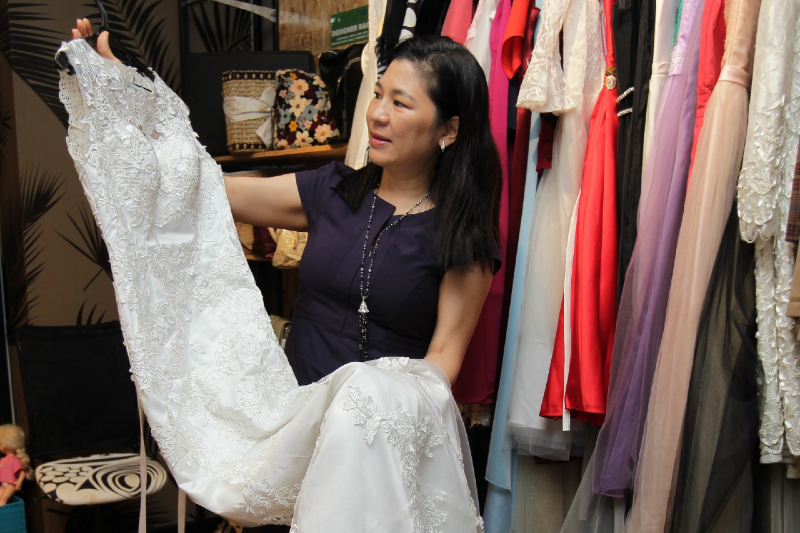
Apparel is sorted by gender and occasion, with a sizeable collection of children’s clothing and toys taking up an entire corner. Flanking it is a broad bookshelf with a wide assortment of fiction and non-fiction reads.
At least 20% of donations are brand-new and in excellent condition, like the rack of ladies’ ballerina flats, discounted at 60% off its retail price. They come from a shoe store in Pavilion Mall Kuala Lumpur, which folded because of challenges in sustaining the business.
“This”, Wong says, gently lifting a lace bridal gown off a hanging rack, “is perfectly good. It really is a lovely material and in great condition. We have a number of these gowns since women wear them only once.”
Fashion accessories — such as bracelets, necklaces, scarves and neckties — are in itemised compartments, while conference bags and travel cases stand perched along tall shelves.
Then, there are the home appliances and décor ornaments, such as an antique US Coast Guard sailing model ship going for RM400.
No apologies for the second-hand business of goods handled with dignity. What is unused in a home or office is likely to fulfil a need in another, and every sale is a cause for celebration since proceeds are channelled back into communities in need.
20200601_peo_photos_of_bargain_basement_15_sy_1.jpg
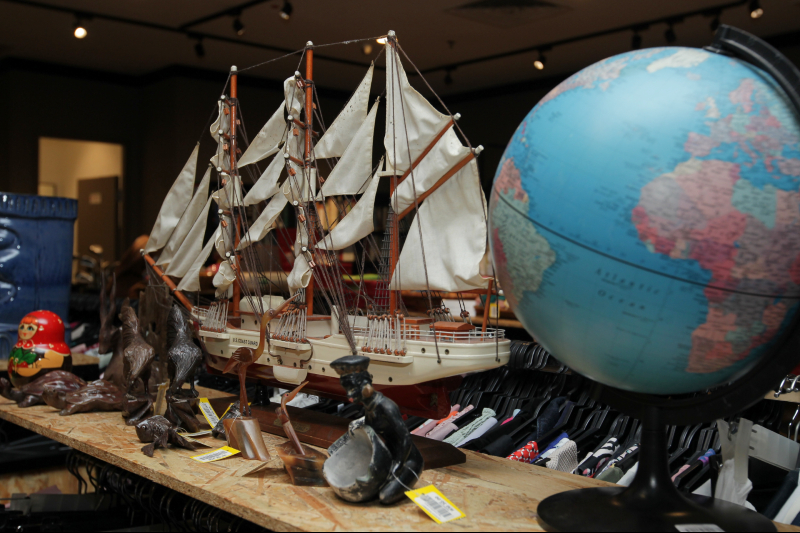
Bargain Basement’s social enterprise business model is lean and efficient. Its inventories are donated, and overheads are kept to a minimal.
Its two outlets at IOI City Mall Putrajaya and IOI Mall Puchong are each manned by reliable full-time staff, with the assistance of a few other administrative officers and, occasionally, part-timers when there is a high volume of incoming goods.
Wong is grateful. Her team has worked faithfully for years and taken to the cause with enthusiasm.
“We do have SOPs (standard operating procedures) such as ensuring 100 new items per day are stocked. Otherwise, customers won’t buy what they cannot see.”
Declutter regularly, spend wisely
When Bargain Basement came onstream with its flagship outlet at IOI City Mall Putrajaya in 2016, Wong’s personal contributions composed a quarter of the store’s inventory. Among them were an unused and boxed crock-pot, curtains and children’s toys — the whole shebang from years of unaccounted storage.
For this very reason, Wong encourages the discipline of frequent decluttering with the hopes that buyers spend more carefully.
Her friends who have espoused the lifestyle are professing improved consumer habits.
“I’m not a heavy consumer myself. I keep a simple wardrobe, with the exception of some fancy garments for dinners. Doing this (advocating the cause of Bargain Basement) has made me realise that we hoard more than necessary,” she observes.
“As long as people are buying things, they have to spring clean. Consider the kids’ rooms. It is amazing the many things that can be drawn out of a little girl’s room,” she adds with a smile.
20200601_peo_photos_of_bargain_basement_16_sy_1.jpg
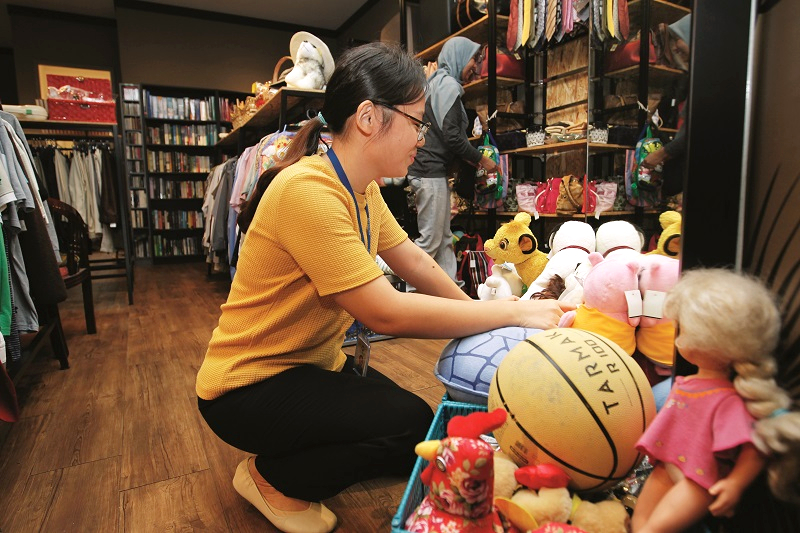
After managing the foundation’s scholarship and student adoption programmes for the last nine years, Wong decided to redirect her interest in community impact programmes to running a business instead.
Handouts, in most cases, have been instrumental in furthering education and career opportunities, but Wong saw a greater impact that could be achieved by running a social enterprise.
Four years on, today, advocating the cause of appropriating preloved goods via Bargain Basement has proven to be a suitable undertaking for the enterprising Wong. She had longed for the thrill of business and meeting its challenges. By focusing on social impact instead of profits, she would not be overwhelmed by the pressures of bottom-line figures. After all, the sweet spot for Wong has always been the opportunity to interact with people through running programmes and projects.
Bargain Basement appeals to a wide clientele — travellers shopping for trinkets, school children who visit the mall for excursions, working professionals from the surrounding vicinity and underprivileged workers.
20200601_peo_photos_of_bargain_basement_13_sy_1.jpg
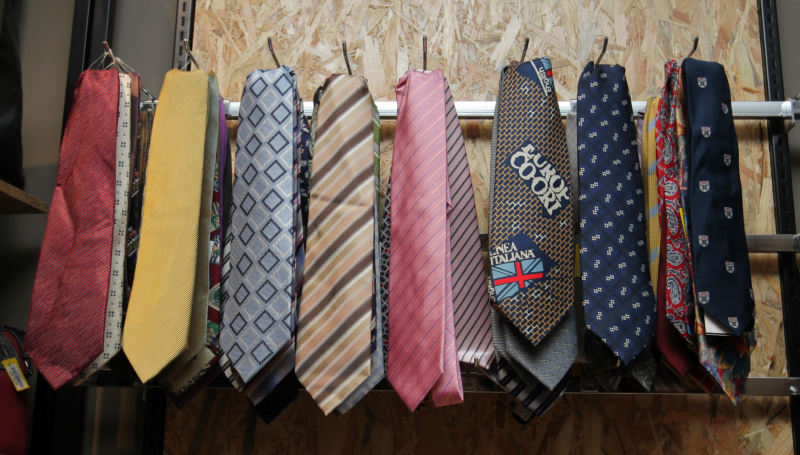
Before the mall opened, Wong had managed to persuade the property’s management to allocate a bus terminal close to the basement shop so that touring groups and feeder line passengers have direct access to the outlet.
Wong remembers a plumber from overseas who was able to buy a frilly dress for his wife and a pair of Crocs for his daughter, totalling less than RM100. She takes pleasure in this sweet memory and was genuinely pleased for his good deal, which would have otherwise been a stretch for him.
Seeking partnerships
The social enterprise is setting out to engage other developers, who are agreeable to providing rent-free space for new Bargain Basement outlets, and sponsors to finance renovations.
Wong is convinced that a number of suburbs in the Klang Valley are able to support a thrift store modelled like this.
A rigorous assessment of beneficiary charities would then need to be undertaken by Bargain Basement’s administration to screen for sustainability and capability.
Wong alludes to home-based organisations — such as Dual Blessing, a little-known social enterprise that provides working opportunities for the physically disadvantaged — as capable and proactive charities that she has gladly supported over the years.
g1011.jpg
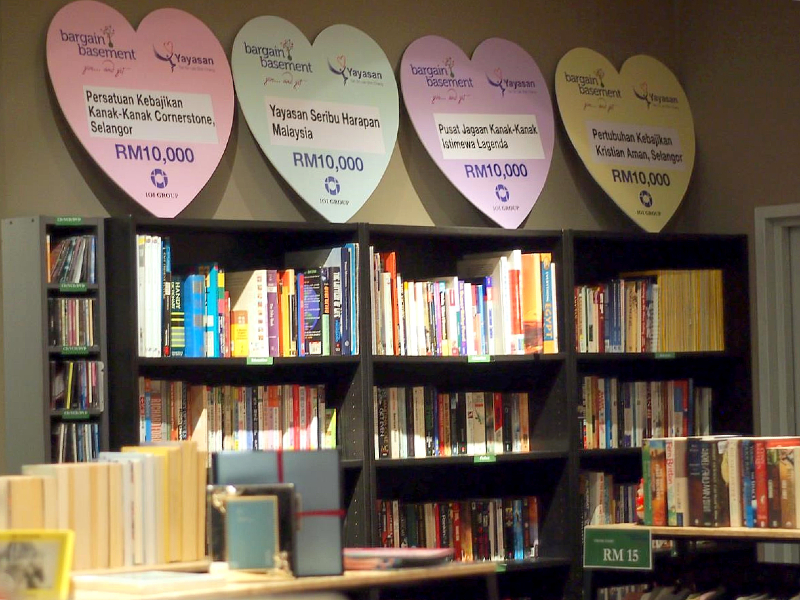
The full proceeds from thrift sales — sans lean deductions for staff salaries, utility and miscellaneous payments — go directly to Bargain Basement’s 20 beneficiaries. They include Alzheimer’s Disease Foundation Malaysia, Autism Café Project, disadvantaged children non-profit Charwiki as well as one-stop learning centre for urban poor children Dignity for Children Foundation.
So far, Bargain Basement has channelled a total of RM264,400 to these organisations.
“Admittedly, these are small figures for IOI Corp, but I would attest to the outreach’s social impact, especially our beneficiary communities, and the meaning it brings to our corporate social responsibility,” Wong remarks.
Naturally, there are business barriers that need to be broken, such as the perception that Bargain Basement is IOI Corp’s initiative and is therefore its own venture to drive.
At any rate, Wong’s team has found a like-minded collaborator in Universiti Tunku Abdul Rahman (UTAR).
Its Kampar campus was supposed to set up a bargain outlet, but plans have been put on hold because of the Covid-19 lockdown and uncertainties ahead.
g1009.jpg
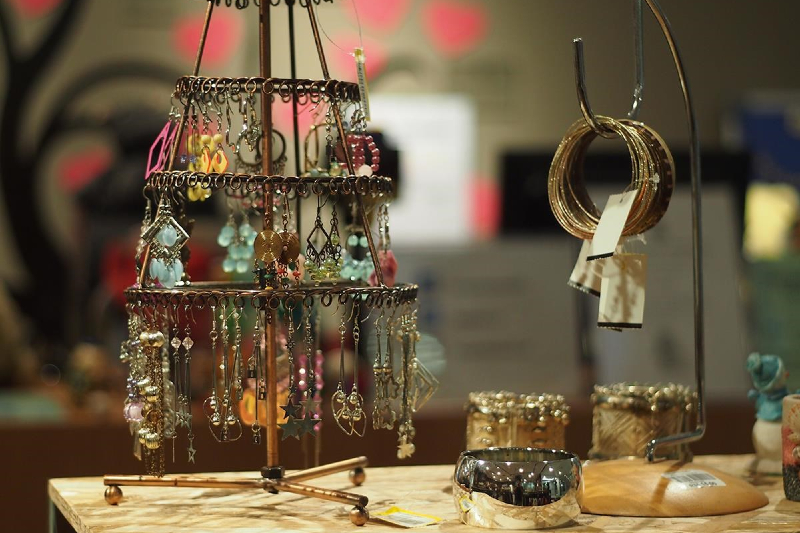
Wong would have liked to engage UTAR’s design students to style the outlet. She envisions such collaborations to be excellent opportunities for students to harness their skills.
Then, there is the social stigma that precedes preloved goods. Fortunately, perception is evolving, thanks to environmentally conscious movements that propagate reusing and recycling of goods.
Besides, Bargain Basement has earned a reputation for its reasonable pricing and being appropriately stocked and tidy. Such a regard is heartening for Wong, as she knows the tremendous care her nimble team puts into managing the social enterprise responsibly and transparently.
“It really is about a matter of impression. Some people may feel that they have an image to [maintain],” remarks Wong, who has bought items from the bargain store such as children’s swimming floats and other miscellanea.
“But suppose a person walks in and sees a nice vase going for RM20. They will buy it. That’s just the reality of it.”
This article first appeared on June 8, 2020 in The Edge Malaysia.


